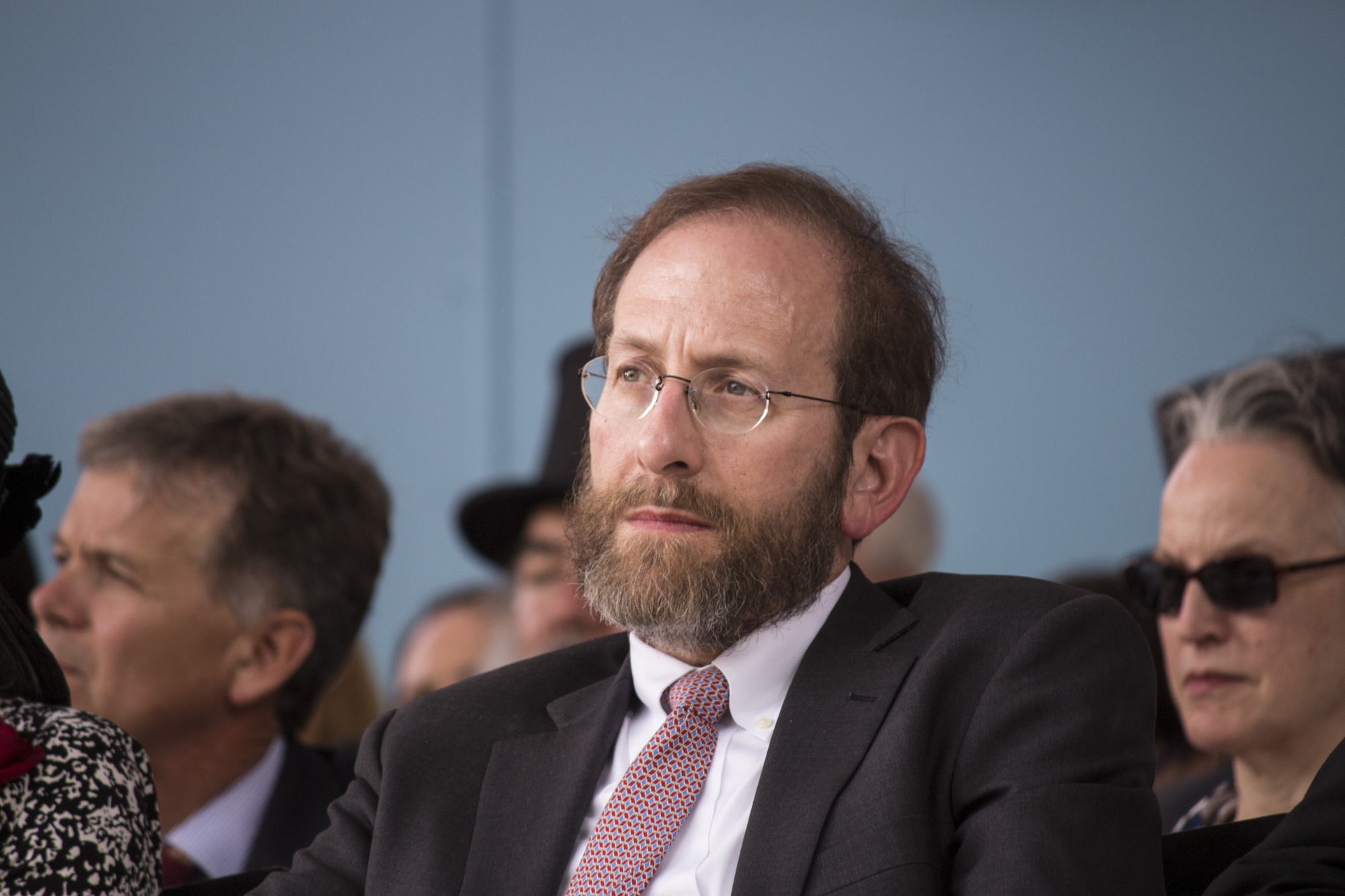
News
Summers Will Not Finish Semester of Teaching as Harvard Investigates Epstein Ties

News
Harvard College Students Report Favoring Divestment from Israel in HUA Survey

News
‘He Should Resign’: Harvard Undergrads Take Hard Line Against Summers Over Epstein Scandal

News
Harvard To Launch New Investigation Into Epstein’s Ties to Summers, Other University Affiliates

News
Harvard Students To Vote on Divestment From Israel in Inaugural HUA Election Survey
‘Much is at Stake’ in Union Election, Provost Writes

In an email sent to the entire Harvard faculty, staff, and student body, University Provost Alan M. Garber ’76 said “much is at stake” in the upcoming graduate student union election on Nov. 16 and 17, writing “from my own perspective, the proposed union raises a number of questions.”
In the election, eligible undergraduate and graduate students will vote for or against authorizing the Harvard Graduate Students Union-United Auto Workers as their union. A collective bargaining unit would include teaching and course assistants, as well as graduate student research assistants at the University.

When Garber last contacted students following the October agreement between the University and the union effort on when to hold the election, he linked to the Provost Office’s frequently asked questions about unionization. This time, Garber directly addressed specific questions in topic ranging from union dues to how unionization could affect the relationship between students and teachers.
Garber asked, in the email, whether or not “one contract” could represent “a large and diverse group of graduate and undergraduate students.”
To answer his own question, Garber wrote, “There is no precedent for this breadth and diversity of schools and disciplines among student unions in the United States.”
In another question, Garber asked, “Is a labor relations framework the best approach to strengthening such relationships and ensuring that each student has a successful experience at Harvard?”
Garber declined to comment directly to The Crimson about the email. Faculty of Arts and Sciences spokesperson Anna Cowenhoven wrote in an email that Garber’s email was directed to the entire student body, as well as to staff and faculty, because “the outcome of this election will impact the entire Harvard community.”
“Like the HGSU-UAW, the University is reaching out to encourage discussion of the issues and a strong voter turnout among eligible students,” Cowenhoven said.
Jack M. Nicoludis, a spokesperson for the student union effort, wrote in an email that there has been an “intensification” of the administration’s actions to “oppose our effort to form a union,” and added that this has been going on “for the past year and a half.” He argued that Garber’s email was intended to make eligible students uncertain about how to vote.
The union effort has circulated petitions asking the University to remain neutral as students move forward with forming a union. Harvard has not signed a neutrality agreement, a decision which Nicoludis said was a disappointment to the HGSU-UAW. New York University did sign an agreement in 2013 when its graduate students voted in a union election.
Several undergraduate and graduate students said they had not yet read the email as of dinnertime Monday.
Shira Li ’19, an undergraduate course assistant, though, did read the email and appreciated it.
“I found the email pretty helpful (not one-sided) and thought it concisely summarized the main contentions surrounding the vote,” Li wrote in an email.
Ph.D. student Holly M. Dykstra, who said she is thinking of voting in favor of the union, also found the email insightful.
“I thought it was helpful to get a clearer understanding of the administration's point of view,” she wrote in an email.
Benjamin Franta, who graduated from his Ph.D. program last May, thought otherwise. Franta said he is ineligible to vote in the union election, but received the email because he is still an associate at the School of Engineering and Applied Sciences. Last year, he said he was “peripherally” involved with the union effort.
Franta said he was “surprised” by how “overt” the email was.
“I was really surprised when I saw the email because it’s presented as a neutral public service announcement, but then it contains these rhetorical questions about the union that appear to be intended to scare people into sticking with the status quo,” Franta said.
In his email, Garber also indicated that the United Auto Workers set a base rate of 1.44 percent of salary for dues, which, for a Harvard teaching fellow who receives $21,200 per year, would amount to $305 annually.
He concluded his email by urging eligible students to “cast an informed vote,” writing that student union elections often see low voter turnout.
—Staff writer Leah S. Yared can be reached at leah.yared@thecrimson.com. Follow her on Twitter @Leah_Yared.
Want to keep up with breaking news? Subscribe to our email newsletter.
